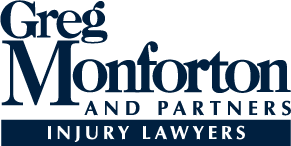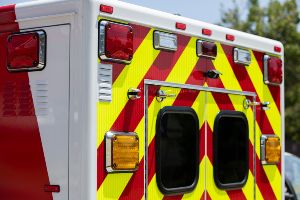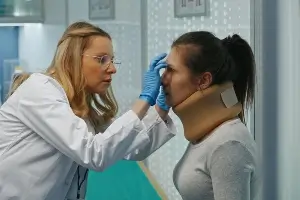Chest pain after a car crash, even when there is no visible sign of an injury, could be serious or even life-threatening.
Table of Contents
Below, Greg Monforton and Partners discusses the most common reasons for post-accident chest pain and what steps you should take to protect your health.
Need legal help after a crash due to another party’s negligence? Our experienced car crash lawyers in Windsor are prepared to help. Your initial consultation is free and confidential. If we represent you, there are no upfront costs or fees to pay.
Request your FREE case review today. Call (817) 920-9000
Is Chest Pain After a Car Accident Serious?
 A car crash could cause chest pain for various reasons. Sometimes anxiety caused by the trauma of being in an accident can result in chest pain. However, because chest pain could also be a symptom of a more serious injury or medical condition, you should always take it seriously and never ignore it.
A car crash could cause chest pain for various reasons. Sometimes anxiety caused by the trauma of being in an accident can result in chest pain. However, because chest pain could also be a symptom of a more serious injury or medical condition, you should always take it seriously and never ignore it.
Common Causes of Post-Crash Chest Pain: From Whiplash to Internal Injuries
Understanding the possible causes for chest pain after a car accident can help you better protect your health.
Here are some common reasons for post-crash chest pain:
Anxiety
The stress of a car crash can manifest in different physical ways. Some people may feel dizzy or nauseous after a car crash, while others may experience chest pain. Drivers, especially, may be prone to feeling anxious this way after being in an accident. People who have chest pain following a collision may also experience shortness of breath and rapid heart rate. However, pain and other symptoms related to anxiety are very short-lived.
Muscle Strain and Sprain
A car crash can cause a lot of general muscle pain throughout the body, but drivers, especially, may feel more pain in the chest, neck and shoulder areas. When people realise they are going to crash, it is common for them to tense their muscles in anticipation. Other symptoms that may accompany strain and sprain injuries include:
- Shortness of breath
- Feeling tired or fatigued
- Mood changes, feeling more irritated
- Rapid heart rate
Airbag Deployment and Steering Wheel Injuries
Being in the driver’s seat or even a front seat passenger may cause you to come into contact with a deploying airbag or steering wheel. This type of impact can also cause chest pain and bruising. Some victims may sustain other injuries as well, such as a broken collarbone or facial bruising.
Despite the risk of injury from a deploying airbag, you have a much greater risk of sustaining more severe or life-threatening injuries without an airbag.
Seat Belt Injuries
Seat belts, similar to airbags, add another layer of safety to drivers and passengers during a traffic accident. However, some people sustain injuries, like seat belt syndrome during the impact of a crash. Most often, this is because a seat belt was not properly fastened. Even when properly worn, you could experience bruising and tenderness across your chest area because of the way a seat belt tightens during a collision.
Blunt Force Trauma
The severity of a crash may cause you to hit an object in the car, like the dashboard or steering wheel. Alternatively, an object flying around in the car could hit you in the chest.
Depending on the intensity of the impact and the speed you were travelling, a car crash could cause:
- Severe bruising across your chest
- One or more fractured ribs
- Fractured collarbone
- Secondary injuries, including a punctured lung
Internal Organ Damage
Your organs are generally well-protected when you fall or bump into something. When a car crash happens, it causes much more significant force, increasing the risk of severe or life-threatening injuries.
The impact could leave you with chest pain if organs in your chest cavity are injured. The most common organ injuries that occur in a crash include:
- Heart
- Lungs
- Spleen
- Liver
- Stomach – all the organs in your abdominal area
Internal damage to your heart and lungs is most likely to cause chest pain. Sometimes, the severity of the injury is not apparent, because the damage is internal. Symptoms may not present immediately. Crash victims who are unaware of this and fail to seek medical care right away could be at risk for irreversible damage or even fatal harm.
Heart Attack
Sometimes a crash is traumatic enough to trigger chest pain and lead to a heart attack. This could happen immediately after a crash or even in the days and weeks after the initial event.
When Should You Seek Medical Attention for Chest Pain?
If you experience chest pain after a car crash, you should not wait to seek immediate medical attention.
Getting a proper medical examination right after a traffic accident helps to ensure you get the treatment you need sooner, rather than later.
Since your visit will be documented in your medical records, this step helps to link your injuries to the crash that caused them. Waiting to seek medical care gives insurers room to argue that your injuries could have happened elsewhere.
Injured in a Car Crash? Contact Our Ontario Law Firm Today
After being involved in a car crash, you may be uncertain what to do first. Injury claims are rarely straightforward, and the legal process is often long and confusing. Often insurance companies bank on the fact that injured victims may not want to deal with the frustration and inconvenience, which is why they may try to offer you a low-ball settlement.
At Greg Monforton and Partners, we emphasise the importance of seeking medical care right away to ensure any injuries you have are stabilised. We also strongly recommend seeking legal help as soon after that as you can.
There is no need to go through this process alone. Our highly qualified legal team is prepared to fight for the full and fair compensation you deserve. Deadlines apply, so be sure you do not wait too late to call. Give your claim the optimum chance it deserves. We are here to help you.
Proven Results. (817) 920-9000




